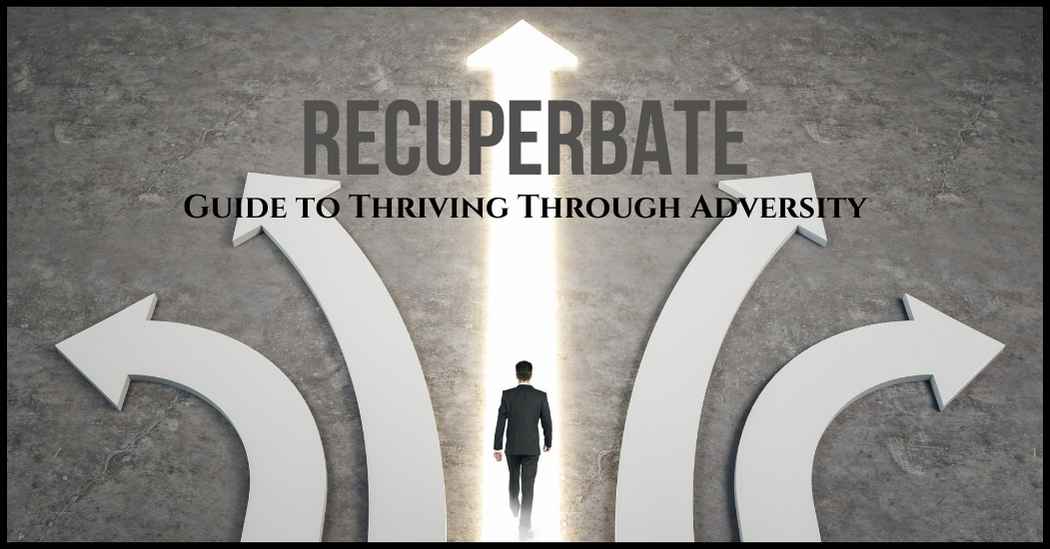Recuperbate: Your Guide to Thriving Through Adversity

Recovery is an integral part of achieving success in life—be it physical, mental, or emotional. Recuperbate is a term that encapsulates the concept of regaining strength, energy, and mental clarity after periods of exertion or stress. This blog delves deep into what recuperbate means, why it is vital, and how you can incorporate it into your daily routine for a healthier, more balanced life.
What Is Recuperbate?
At its core, recuperbate refers to the process of recovering or restoring oneself after stress, illness, or strenuous activity. While recovery is often associated with physical health, recuperbate takes a more holistic approach, emphasizing the importance of recovery in every aspect of life. It’s about taking the time to heal, recharge, and come back stronger.
Whether you’re recovering from a marathon, a tough work week, or an emotional challenge, the principles of recuperbate apply universally.
Gel Ooru: A Holistic Path to Well-Being
The Key Aspects of Recuperbate
1. Physical Recovery
Physical recuperation is vital for maintaining fitness and preventing injuries. It is particularly important for athletes, fitness enthusiasts, or anyone engaged in physically demanding activities.
- Muscle Repair: After intense exercise, your muscles need time to heal and rebuild. Incorporating activities like stretching, yoga, or low-impact workouts can aid recovery.
- Sleep and Rest: Quality sleep plays a significant role in physical recuperation by allowing the body to repair cells and tissues.
- Nutrition: Consuming nutrient-rich foods—especially those high in protein and antioxidants—can accelerate recovery and improve overall health.
2. Mental Recovery
In our fast-paced world, mental recuperation often takes a backseat. However, mental fatigue can be just as detrimental as physical exhaustion.
- Mindfulness Practices: Activities like meditation and deep breathing exercises help reduce stress and enhance mental clarity.
- Unplugging: Taking breaks from digital screens and social media can work wonders for mental recovery.
- Creative Outlets: Engaging in hobbies like painting, writing, or music allows the mind to relax and recharge.
3. Emotional Recovery
Emotional well-being is a cornerstone of overall health. Recuperbate extends to emotional recovery by encouraging practices that build resilience and foster inner peace.
- Journaling: Writing about your feelings can help process emotions and gain perspective.
- Connection with Others: Talking to friends, family, or a therapist can provide emotional support and aid recovery.
- Self-Compassion: Practicing kindness toward yourself is essential for emotional healing.
4. The Balance Between Activity and Rest
One of the core principles of recuperbate is finding balance. Overworking yourself—whether physically, mentally, or emotionally—can lead to burnout. Incorporating rest periods into your routine ensures that you remain productive and healthy in the long run.
Antarvacna: Your Journey to Self-Discovery
Why Is Recuperbate Important?
- Prevents Burnout: Regular recovery practices reduce the risk of physical and mental exhaustion.
- Enhances Performance: Whether at work, in the gym, or in personal relationships, recovery allows you to perform at your best.
- Boosts Resilience: Recuperbate strengthens your ability to bounce back from challenges.
- Promotes Longevity: Recovery is essential for long-term health, reducing the risk of chronic illnesses and injuries.
Strategies to Incorporate Recuperbate Into Your Life
For Physical Recuperation
- Schedule rest days in your fitness routine.
- Practice active recovery, such as walking or light stretching.
- Invest in tools like foam rollers or massage devices.
For Mental Recuperation
- Create a daily mindfulness routine.
- Take short breaks throughout the day to avoid mental fatigue.
- Limit multitasking and focus on one task at a time.
For Emotional Recuperation
- Dedicate time to activities that bring you joy.
- Practice gratitude daily by reflecting on positive moments.
- Seek support when needed—don’t hesitate to ask for help.
The Role of Recuperbate in Modern Life
In today’s high-pressure environment, the concept of recuperbate is more relevant than ever. People often feel the need to constantly stay busy, which can lead to physical exhaustion, mental burnout, and emotional strain. By prioritizing recovery, we can break this cycle and build healthier habits.
Conclusion
Recuperbate is not just a buzzword—it’s a vital practice that can transform your life. By focusing on recovery in every aspect of your well-being, you can achieve a healthier, more balanced lifestyle. Whether you’re an athlete, a professional, or someone navigating the challenges of daily life, incorporating the principles of recuperbate will empower you to recharge and thrive.
For More Updates: Click Here!
FAQs
What does recuperbate mean?
Recuperbate refers to the process of recovery and regaining strength, whether physically, mentally, or emotionally, after periods of stress or exertion.
How can I incorporate recuperbate into my fitness routine?
Include rest days, practice active recovery exercises, and ensure proper hydration and nutrition to support your body’s recuperation.
Why is mental recovery important?
Mental recovery helps reduce stress, improve focus, and prevent burnout, which is essential for overall well-being and productivity.
Can recuperbate help with emotional healing?
Yes, recuperbat includes emotional recovery practices such as journaling, self-compassion, and seeking support from loved ones or professionals.
How do I balance activity and rest?
Prioritize rest periods in your schedule, listen to your body’s signals, and maintain a routine that includes relaxation and leisure activities.







One Comment